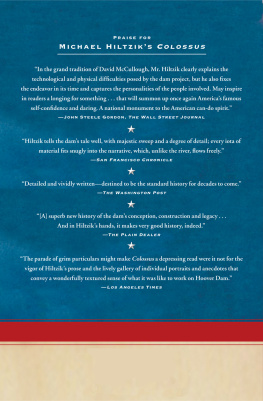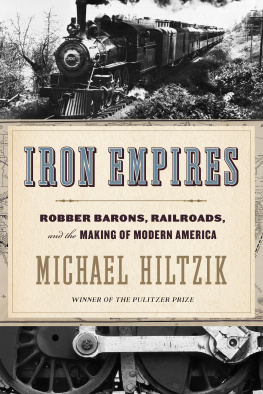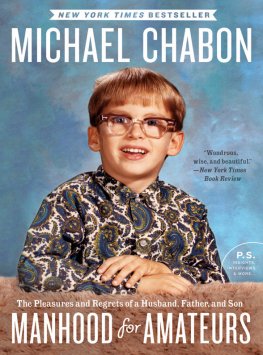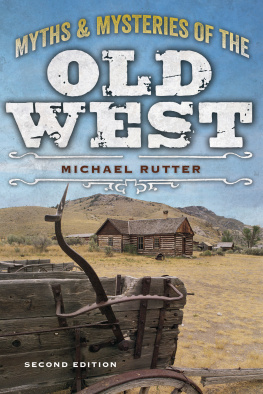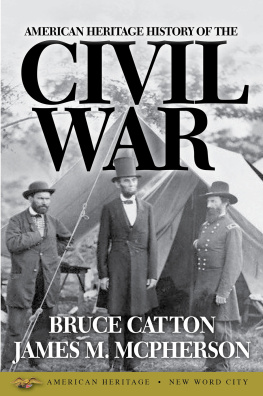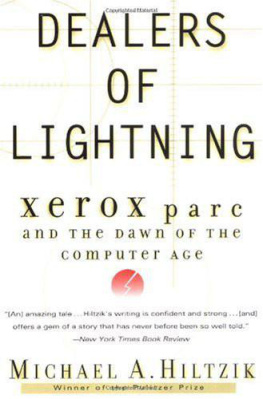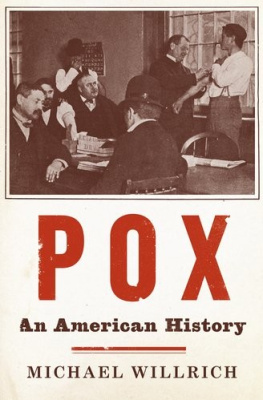Michael Hiltzik - The New Deal: A Modern History
Here you can read online Michael Hiltzik - The New Deal: A Modern History full text of the book (entire story) in english for free. Download pdf and epub, get meaning, cover and reviews about this ebook. City: New York, year: 2012, publisher: Free Press, genre: History. Description of the work, (preface) as well as reviews are available. Best literature library LitArk.com created for fans of good reading and offers a wide selection of genres:
Romance novel
Science fiction
Adventure
Detective
Science
History
Home and family
Prose
Art
Politics
Computer
Non-fiction
Religion
Business
Children
Humor
Choose a favorite category and find really read worthwhile books. Enjoy immersion in the world of imagination, feel the emotions of the characters or learn something new for yourself, make an fascinating discovery.
- Book:The New Deal: A Modern History
- Author:
- Publisher:Free Press
- Genre:
- Year:2012
- City:New York
- Rating:3 / 5
- Favourites:Add to favourites
- Your mark:
- 60
- 1
- 2
- 3
- 4
- 5
The New Deal: A Modern History: summary, description and annotation
We offer to read an annotation, description, summary or preface (depends on what the author of the book "The New Deal: A Modern History" wrote himself). If you haven't found the necessary information about the book — write in the comments, we will try to find it.
The New Deal: A Modern History — read online for free the complete book (whole text) full work
Below is the text of the book, divided by pages. System saving the place of the last page read, allows you to conveniently read the book "The New Deal: A Modern History" online for free, without having to search again every time where you left off. Put a bookmark, and you can go to the page where you finished reading at any time.
Font size:
Interval:
Bookmark:

Thank you for purchasing this Simon & Schuster eBook.
Sign up for our newsletter and receive special offers, access to bonus content, and info on the latest new releases and other great eBooks from Free Press.

or visit us online to sign up at
eBookNews.SimonandSchuster.com

ALSO BY MICHAEL HILTZIK
g
A DEATH IN KENYA
The Murder of Julie Ward
DEALERS OF LIGHTNING
Xerox PARC and the Dawn of the Computer Age
THE PLOT AGAINST SOCIAL SECURITY
How the Bush Plan Is Endangering Our Financial Future
COLOSSUS
The Turbulent, Thrilling Saga of the Building of Hoover Dam


Free Press
A Division of Simon & Schuster, Inc.
1230 Avenue of the Americas
New York, NY 10020
www.SimonandSchuster.com
Copyright 2011 by Michael Hiltzik
All rights reserved, including the right to reproduce this book or portions thereof in any form whatsoever. For information address Free Press Subsidiary Rights Department, 1230 Avenue of the Americas, New York, NY 10020.
First Free Press hardcover edition September 2011
FREE PRESS and colophon are trademarks of Simon & Schuster, Inc.
The Simon & Schuster Speakers Bureau can bring authors to your live event. For more information or to book an event contact the Simon & Schuster Speakers Bureau at 1-866-248-3049 or visit our website at www.simonspeakers.com .
Photo on : FDR delivering his first Fireside Chat, from the collections of the Franklin D. Roosevelt Presidential Library and Museum.
Photo insert credits: : Collection of the Supreme Court of the United States
Manufactured in the United States of America
1 3 5 7 9 10 8 6 4 2
Library of Congress Cataloging-in-Publication Data
Hiltzik, Michael A.
The New Deal : a modern history / Michael Hiltzik.
p. cm.
Includes bibliographical references and index.
1. New Deal, 19331939. 2. United StatesPolitics and government19331945.
3. United StatesEconomic conditions19181945. 4. Depressions1929
United States. I. Title.
E806.H557 2011
973.917dc22
2011011367
ISBN 978-1-4391-5448-9
ISBN 978-1-4391-5895-1 (ebook)
To Deborah, Andrew, and David
I do not look upon these United States as a finished product. We are still in the making.
Franklin Roosevelt, February 23, 1936
I am an old campaigner, and I love a good fight.
Franklin Roosevelt, October 26, 1936
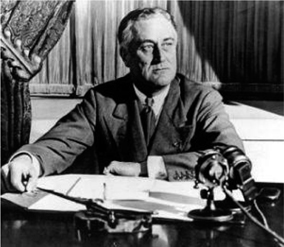

THE NEW DEAL

THE LONG WINTER
I PLEDGE MYSELF TO a new deal for the American people.
that he gave those words little thought when, holed up in a dining room of the executive mansion in Albany, New York, and fortified by a rough meal of boiled frankfurters and a pot of coffee, he scribbled them on a scrap of paper.
At that moment he was convinced they never would be uttered aloud. It was the early morning of July 1, 1932. In Chicago, the Democratic National Convention had completed its third ballot for the nomination for president. Rosenmans candidate, New York Governor Franklin D. Roosevelt, was still eighty-eight votes short of the required two-thirds majority. Rosenman, who was Roosevelts speechwriter, a charter member of his Brain Trust, and an old personal friend, had been drafting the governors acceptance speech intermittently for months. The body of the speech had reached its final form several days earlier. All that remained to be drafted was the peroration, that uplifting oratorical coda pinned to the end of every well-crafted speech. Rosenman had set aside the peroration for last, and during the frenetic first days of the convention left it undone.
Seeking a respite from the long, numbing sequence of nominating and seconding speeches coming over the radio, Roosevelt had tried his own hand at a closing. But constant interruptions by phone from the convention floor ruined his concentration. He read his effort aloud to his gathered aides. We unanimously said it was terrible, so he sadly tore it up, Rosenman recalled. The next day Rosenman took up the task again as an antidote to his own restlessness. His spirits were weighed down by the thought that all his work would likely be in vain, for the nomination seemed to be drifting further away with every inconclusive ballot.
Rosenman never specified the source of the term new deal, but it was certainly in the air. His fellow Brain Truster Ray Moley had used it in a covering note to a package of informational memos he had given Rosenman to pass on to Roosevelt in May. (, Chase argued that the Great Depression had been caused by overinvestment in industrial plants and production during the 1920s. He surveyed possible remedies, rejecting violent revolution or the dictatorship of big business in favor of a third road: central regulation leading to a progressive revision of the economic structure, avoiding an utter break with the past.
In his memoirs Rosenman credited neither source, but both usages were certainly known to him and perhaps recorded in his subliminal memory. After all, several other phrases from Moleys cover letter made it into the acceptance speech almost verbatim. And Chase was a sort of orbiting satellite in the Roosevelt universe, if not a member of the inmost circle of advisors; it was he who had discovered and recruited for Roosevelts economic team a progressive-minded Utah banker named Marriner Eccles, whom Roosevelt would later appoint governor of the Federal Reserve. Chases view of overinvestment as a cause of the Depression had become Roosevelt campaign orthodoxy, as had his recommendation for overhauling rather than demolishing the nations existing financial structure.
Roosevelt, who was handed the scrap of paper with Rosenmans drafted peroration before leaving Albany for Chicago, told him it seemed all right without remarking on the phrase new deal. When he delivered the speech from the convention floor on July 2, Roosevelt gave the words a modest cadential stress, but no more than he did to several other phrases in the text that might have served just as well as a clarion calla new chance, for example, or a new order or a new time.
The elevation of this casual phrase into a unifying label for Franklin Roosevelts peacetime domestic policy was an accident of history. The next days newspapers treated the peroration with indifference. The New York Times did not quote the new deal phrase at all in the front-page convention report by its distinguished Washington editor, Arthur Krock; the Los Angeles Times slightly misquoted its context. But the New York World-Telegram published a drawing by its editorial cartoonist, Rollin Kirby, depicting a farmer staring up at a plane passing overhead with the words New Deal emblazoned on its wings. This was the first indication that a popular phrase had been coined, Rosenman reflected. Within a short time it became a commonplacethe watchword of a fighting political faith.
Next pageFont size:
Interval:
Bookmark:
Similar books «The New Deal: A Modern History»
Look at similar books to The New Deal: A Modern History. We have selected literature similar in name and meaning in the hope of providing readers with more options to find new, interesting, not yet read works.
Discussion, reviews of the book The New Deal: A Modern History and just readers' own opinions. Leave your comments, write what you think about the work, its meaning or the main characters. Specify what exactly you liked and what you didn't like, and why you think so.

